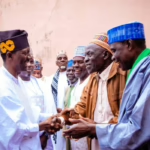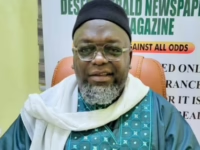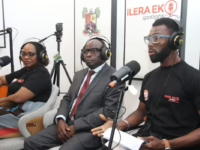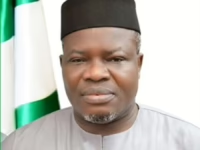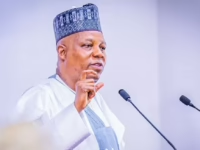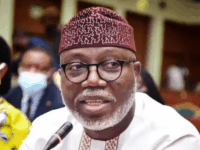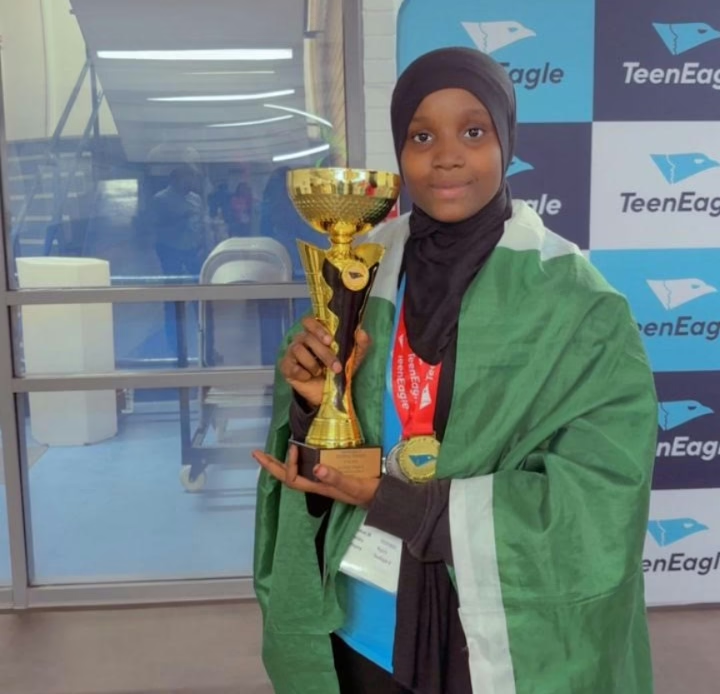At just seventeen, she captivated the world with her eloquence – inspiring a nation to believe in its potential once more.
The Rise of a Prodigy
Nafisa Abdullahi Aminu, a 17-year-old student from Tulip International College in Yobe State, stepped onto the international stage at the 2025 TeenEagle Global Finals held in London. Few anticipated the profound impact she would soon make.
By the competition’s conclusion, Nafisa had triumphed over participants from 69 countries, earning the prestigious title of World Best in English Language.
This victory was more than a personal achievement; it was a powerful testament that talent transcends borders.
“My goal was simply to bring pride to Nigeria,” she reflected with modest assurance.
“I never expected to command the world’s attention.”
From Humble Beginnings to Global Acclaim
Originally from Kano State and raised in Yobe, Nafisa’s journey is a compelling narrative of resilience and ambition.
After losing her father in infancy, she was nurtured by her stepfather, Alhaji Yusuf Umar Kaigama, who instilled in her the principles of discipline and perseverance.
She also boasts a distinguished heritage, descending from two esteemed rulers of the Kano Emirate: Emir Ibrahim Dabo and Emir Abdullahi Maje Karofi.
Yet, it was her relentless pursuit of knowledge and her desire to empower others through language that truly distinguished her.
In a region often overshadowed by insecurity, Nafisa emerged as a shining example of what can be achieved when determination meets opportunity.
A Victory That Resonates Nationwide
The TeenEagle Global Finals, a demanding competition with over 20,000 contenders worldwide, witnessed Nafisa’s exceptional mastery of English captivate judges and fellow competitors alike.
She surpassed participants from powerhouse nations such as the United States, the United Kingdom, and Canada, challenging prevailing perceptions about education in northern Nigeria.
Her success symbolized more than a trophy; it represented hope for millions of Nigerian youths, particularly girls, who aspire to overcome adversity.
“Her accomplishment sends a clear message: Nigeria’s potential is limitless when talent is nurtured rather than overlooked.”
Igniting a Movement
In the wake of her triumph, Nafisa initiated a compelling campaign titled “Always Speak English: No More Vernacular in Schools.”
She emphasized that mastering English does not mean forsaking cultural identity but rather embracing broader opportunities.
Traveling to schools and speaking at assemblies, she encouraged students to harness English as a gateway to global engagement.
“Poor English skills can shut doors that raw talent alone cannot open. But when you speak confidently, the world takes notice,” she asserted.
Her advocacy quickly gained momentum, sparking conversations and admiration across social media platforms and classrooms throughout Nigeria’s North-East.
An Inspirational Figurehead
Nafisa’s blend of humility, intellect, and composure has elevated her to a national emblem of excellence.
In an era often dominated by fleeting celebrity, her ascent underscores the enduring power of knowledge, discipline, and dignity.
Her remarkable feat earned her induction into the Arewa Wall of Fame, making her the youngest individual ever to receive this honor.
She now shares this prestigious recognition with cultural legends, innovators, and public figures who have shaped northern Nigeria’s legacy.
Building a Lasting Legacy
What makes Nafisa’s story particularly extraordinary is that she embodies a new paradigm of education-one driven not by privilege but by relentless effort.
Her success is already motivating a fresh wave of students who now view academic achievement as a source of pride rather than pressure.
Across classrooms in Yobe and Kano, her name has become synonymous with possibility.
Educators reference her as an example, and parents encourage their children with the words, “If Nafisa can achieve this, so can you.”
Her influence has sparked a ripple effect, prompting increased investment in literacy initiatives and debate programs from both government and private sectors.
“She didn’t merely win a contest,” remarked one mentor, “she recalibrated the aspirations of an entire generation.”
The Transformative Power of Language
For Nafisa, language transcends mere grammar and vocabulary-it is a tool of empowerment.
It bridges the gap between isolation and opportunity, transforming silence into expression.
Her ambition is to pursue linguistics and eventually become an international advocate for education, dedicated to helping young Africans find their voice in a connected world.
This vision, much like her journey, reflects a broader hope: an Africa that confidently embraces its brilliance without apology.


